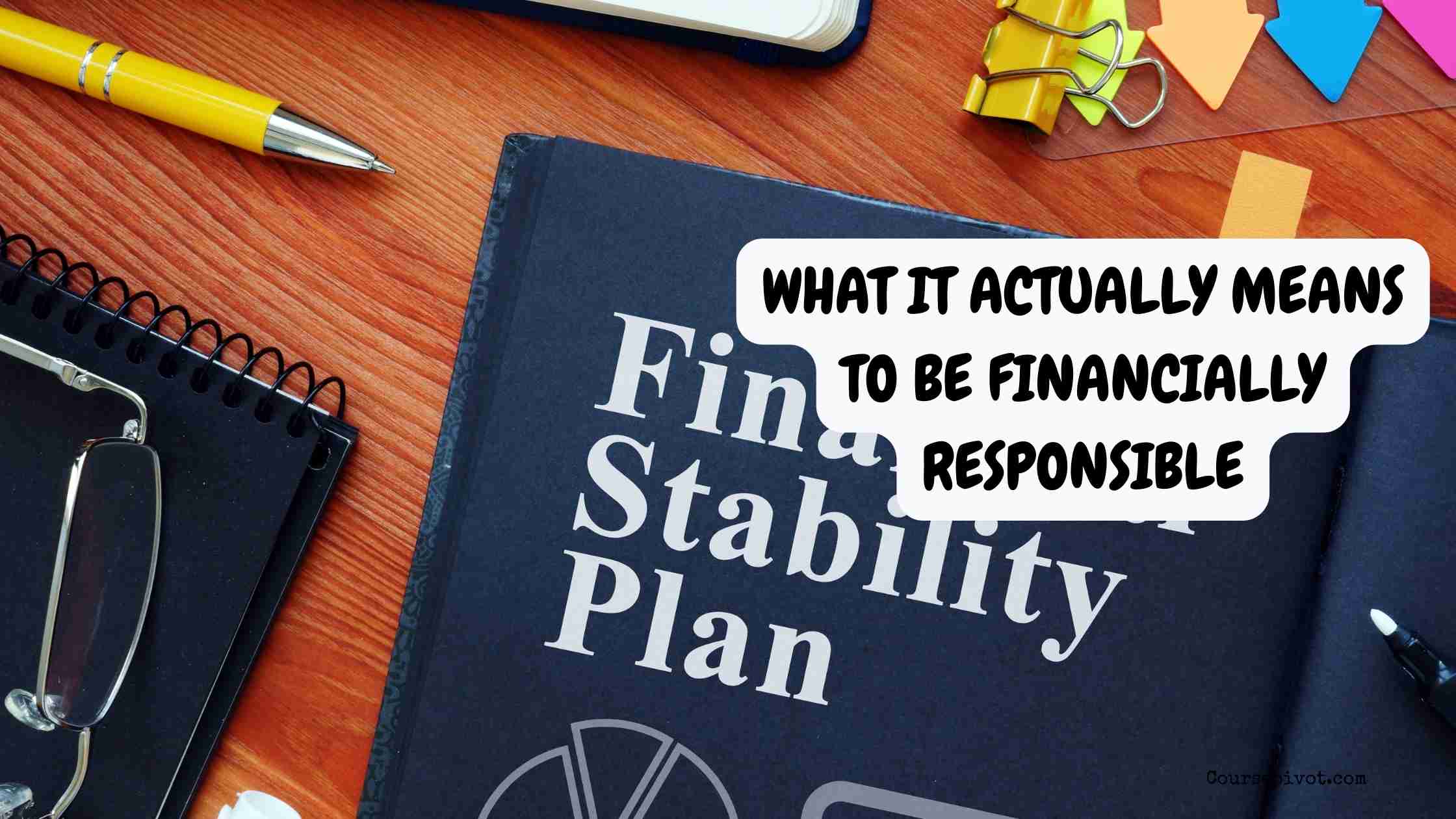
What It Actually Means to Be Financially Responsible
When people say “be financially responsible,” it sounds simple — but the reality goes deeper. From my experience, being financially responsible means much more than just paying bills on time or having money in your bank account. It’s about how you manage, plan, and think about money every day.
Financial Responsibility Means Taking Control of Your Money
At its core, being financially responsible means you take ownership of your financial decisions. You don’t ignore money problems or hope they’ll solve themselves. Instead, you face them head-on. You track what you earn and spend. You set budgets and stick to them. This awareness helps avoid debt traps and surprises.
- Read our blog on What It Means to Diversify Across Investments
It’s About Planning for Today and Tomorrow
Financial responsibility isn’t just about covering today’s expenses. It means planning for the future too. Saving for emergencies, retirement, and big goals like buying a home or education shows discipline. You understand that money isn’t just for immediate gratification but a tool to build stability and security.
Living Within Your Means
A huge part of financial responsibility is knowing how to live within your income. That means resisting the urge to overspend, avoiding unnecessary debt, and making thoughtful choices about purchases. It’s about prioritizing needs over wants and making sure your lifestyle matches what you can realistically afford.
Being Prepared for the Unexpected
Life throws curveballs — job loss, medical emergencies, or urgent repairs. Financially responsible people prepare for these by building an emergency fund and having insurance when needed. This readiness reduces stress and prevents crises from becoming disasters.
- Read our blog on What It Means to Diversify by Asset Class
Understanding the Impact of Your Financial Choices
Every financial decision has consequences, whether it’s taking a loan, investing, or using credit cards. Being financially responsible means educating yourself on these effects and making informed choices. It means asking questions like: Can I pay this off? Is this investment right for me? What are the risks?
Why It Matters
When you’re financially responsible, you gain peace of mind. You reduce stress about money because you’re organized and prepared. You open doors to opportunities — like buying a home, traveling, or starting a business. And importantly, you set an example for others, like family or friends, about healthy money habits.
What I can conclude here
Financial responsibility is more than just managing cash flow — it’s a mindset and lifestyle.
It means being aware, planning ahead, living realistically, and understanding the impact of your choices.
When you take financial responsibility seriously, you’re not just surviving; you’re building a foundation for a secure, empowered future.
Cite this article
You can copy and paste your preferred citation format below.
Martin, L. & Arquette, E.. (2025, May 26). What It Actually Means to Be Financially Responsible. Coursepivot.com. https://coursepivot.com/blog/what-it-actually-means-to-be-financially-responsible/



